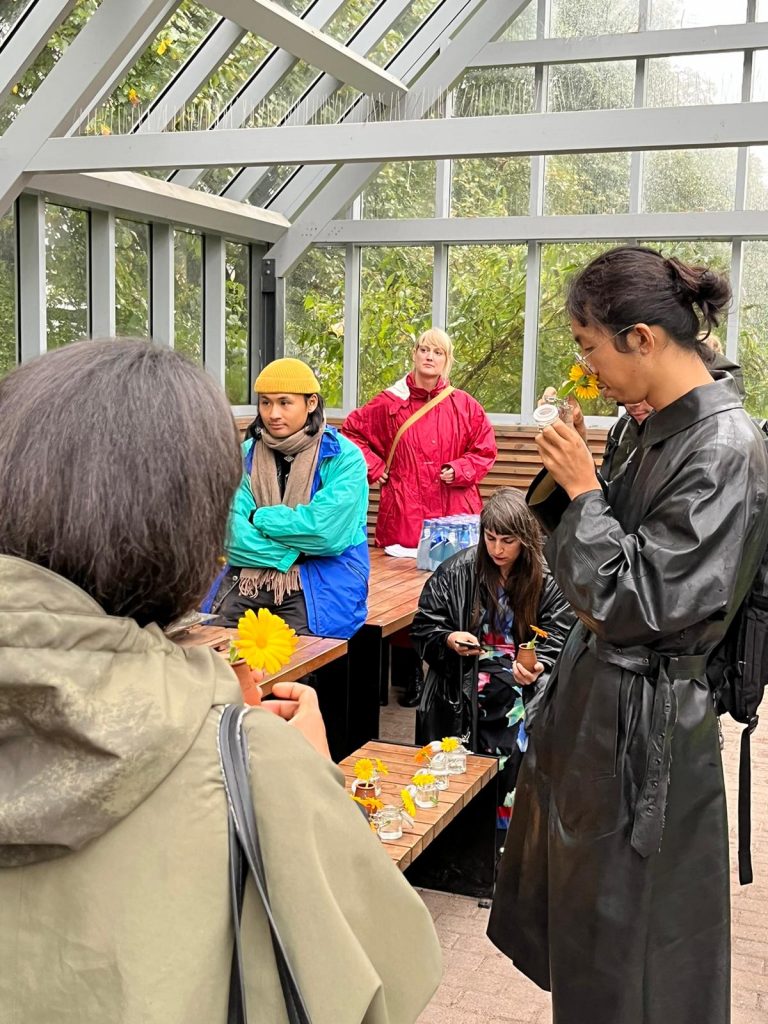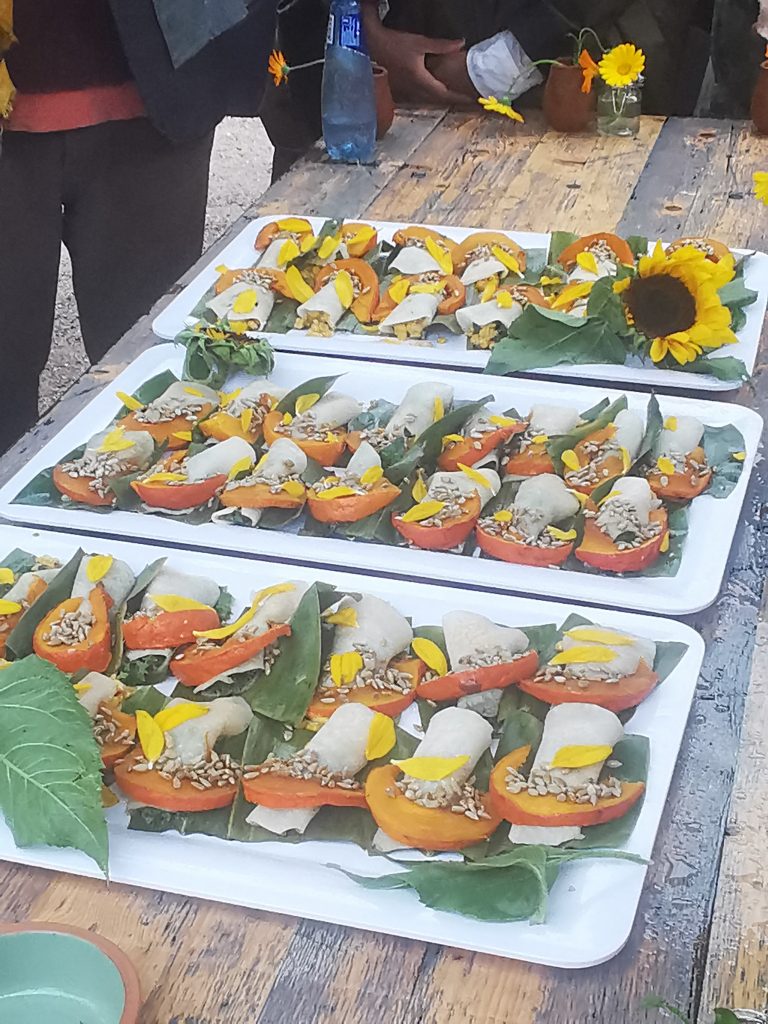Published: 7 November 2022
The Ledger of the Sun, in collaboration with artist-researcher Jamie Allen
A few weeks ago, Artsformation held its fourth design fiction workshop titled The Ledger of the Sun. The workshop was developed in close collaboration with artist-researcher Jamie Allen. The workshop took place on a rainy Friday afternoon on October 23rd in Oslo, as part of the opening weekend of the Oslo Architecture Triennale 2022.
With the design fiction workshops it is Artsformation’s ambition to set a stage where artists from a diversity of backgrounds and experience can bring their visions of the digital transformation and discuss its impacts on local communities. In this scenario, the artists collaborate closely with people from the community to elucidate about the alternative futures we would like to have in a world that is shifting to a web 3.0 era. Due to its perceived complexity, Blockchain and cryptocurrencies seem to be daunting technologies to learn. For the larger majority of people, these technologies remain abstract and far removed from their everyday life. Hoping to bring the topics of blockchain technologies, cryptocurrencies, and alternative economies to a broader spectrum of people, The Ledger of the Sun workshop took the form of a walk in the former Edvard Munch Museum and the Oslo Botanical Gardens in combination with a specially designed canapé meal. Fitting to the topic of the Oslo Architecture Triennale, “Neighborhoods”, the workshop also explored the potential role of these technologies in supporting the development of more diverse and sustainable communities.
The workshop started with a gathering, introduction to the workshop, and a reading in the former Munch Museum in Oslo. Through the introduction and reading, artist-researcher Jamie Allen invited workshop participants to reflect upon the current unsustainable relationship between capitalism and climate, highlighting the ways in which values outside of the monetary urgently needs to be protected and promoted. Making a connection to the digital, Allen then pointed to the historical development of things like energy currencies and ecosystem services, as well as contemporary experiments with distributed governance and environmental and blockchain technologies, which allow for new constellations and approaches to management and more sustainable social and economic systems.
Following this introduction, we walked together into the Botanical Garden. Over the next couple of hours, the workshop took us around different stations in the Botanical Garden. At the first station, all participants received a small vase with a flower, which represented the currency with which we could all pay for the food available at the following stations. The cost of the canapés served, depended on the estimated amount of solar energy needed to grow the ingredients. In this way, participants had the experience of being part of and using a currency that was depended on the availability of sunlight – The Ledger of the Sun. Furter supporting our imagination, at each station in the Botanical Gardens was a reading on the topic of the sun, night and day, distributed technologies, and alternative economies.
The workshop ended with a conversation in the venues of the Botanical Garden Museum, where a solar tunnel built for the workshop warmed up the participants, showering them with vitamin-D. This gave participants further opportunity to discuss the topics of the workshop, with each other and with the involved artists and researchers. This participatory installation and metaphorical storytelling, exemplifies how the socially engaged artist/social practitioner engages in a fruitful interaction with the community to address in a tangible way issues that are still too theoretical to many, such as Blockchain technology and cryptocurrencies.
As a conclusion, we see the practice of such artistic interactions conducive to bring topics belonging to the realm of the technologists in the hands of non-experts through allegories and hands-on practice. We evidenced that people are eager to understand not only the significance of the aforementioned technological advances and their possible impacts on our existence, but also aim to learn the required skills so they can active part of such transition and to make it more inclusive to all.



